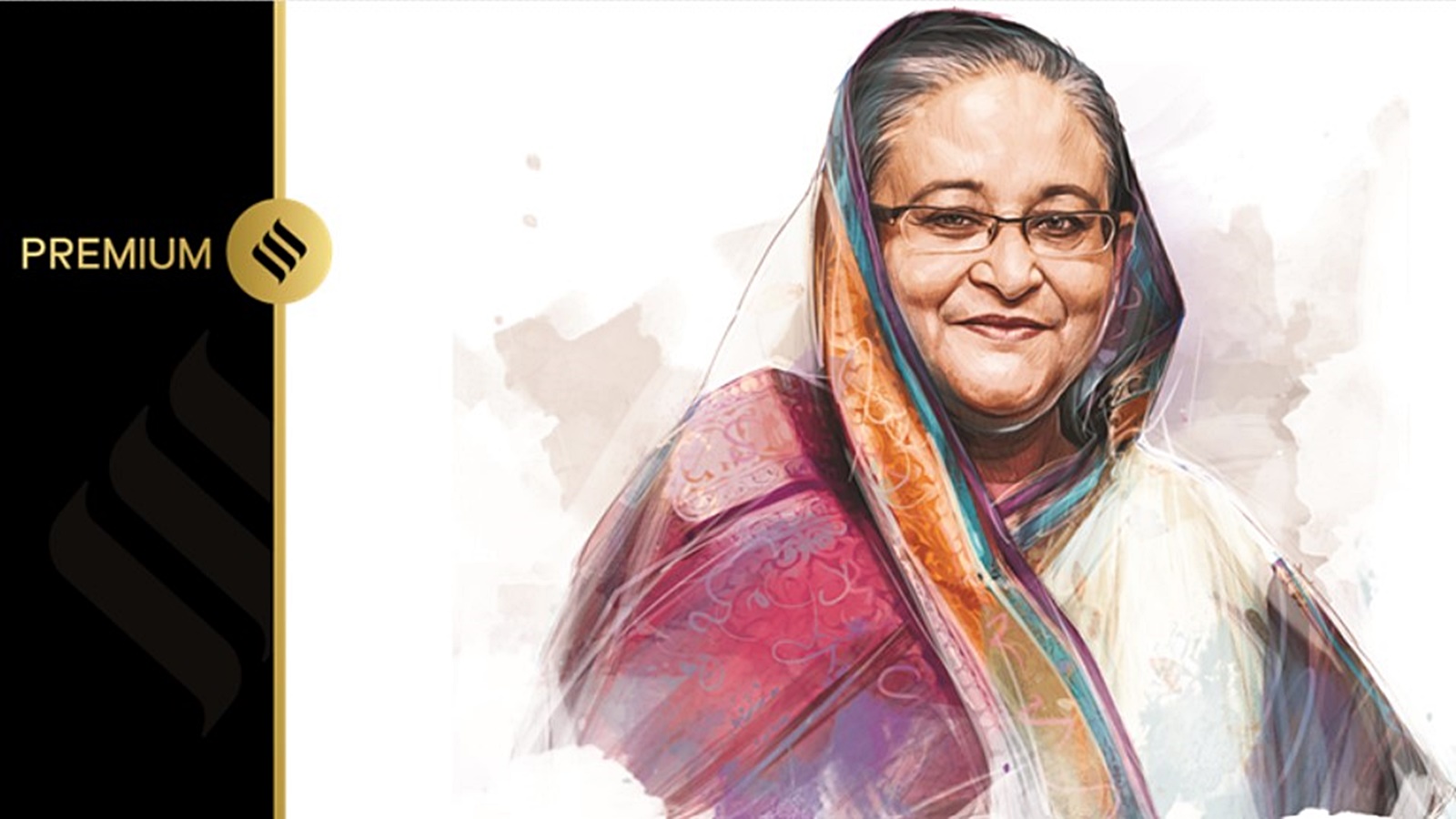As Sheikh Hasina begins her fifth term in power and fourth in a row, Bangladesh is on the cusp of history. Under Hasina and her Awami League, the country is set to make the big leap out of the group of least developed countries (LDCs) by 2026 and will share the table with developing countries India and China.
In an election boycotted by the main Opposition Bangladesh Nationalist Party (BNP) and its allies, Hasina’s ruling Awami League won 222 seats out of 300; the Jatiya Party 11 seats; the Workers’ Party, Jatiya Samajtantrik Dal and Bangladesh Kalyan Party one seat each; and Independent candidates won 62 seats.
On Friday, Mahfuz Anam, editor and publisher of Bangladesh’s largest English daily, The Daily Star, pointed out in an incisive piece that there’s more to Hasina’s win than meets the eye. The seats won by the rebels, most of them “lifelong Awami-Leaguers”, the Jatiya Party and that of the two alliance partners, had the “blessings” of the Awami League. “If we add the 50 reserved seats for women, by far the majority of which will go to the Awami League, Hasina can easily claim a tally of minimum 45 more, making for a total of 338 MPs in a House of 350. Can it then be termed as anything other than a one-party rule?,” wrote Anam, who has been at the receiving end of Hasina’s crackdown on dissent.
It’s a question whose echo has travelled far beyond the country’s borders — from neighbours India and China, to the US — as her government faces allegations of highhandedness and intolerance.
Yet, if New Delhi has held its nose to welcome her victory, it’s because Bangladesh’s history and geography is so intertwined with India’s.

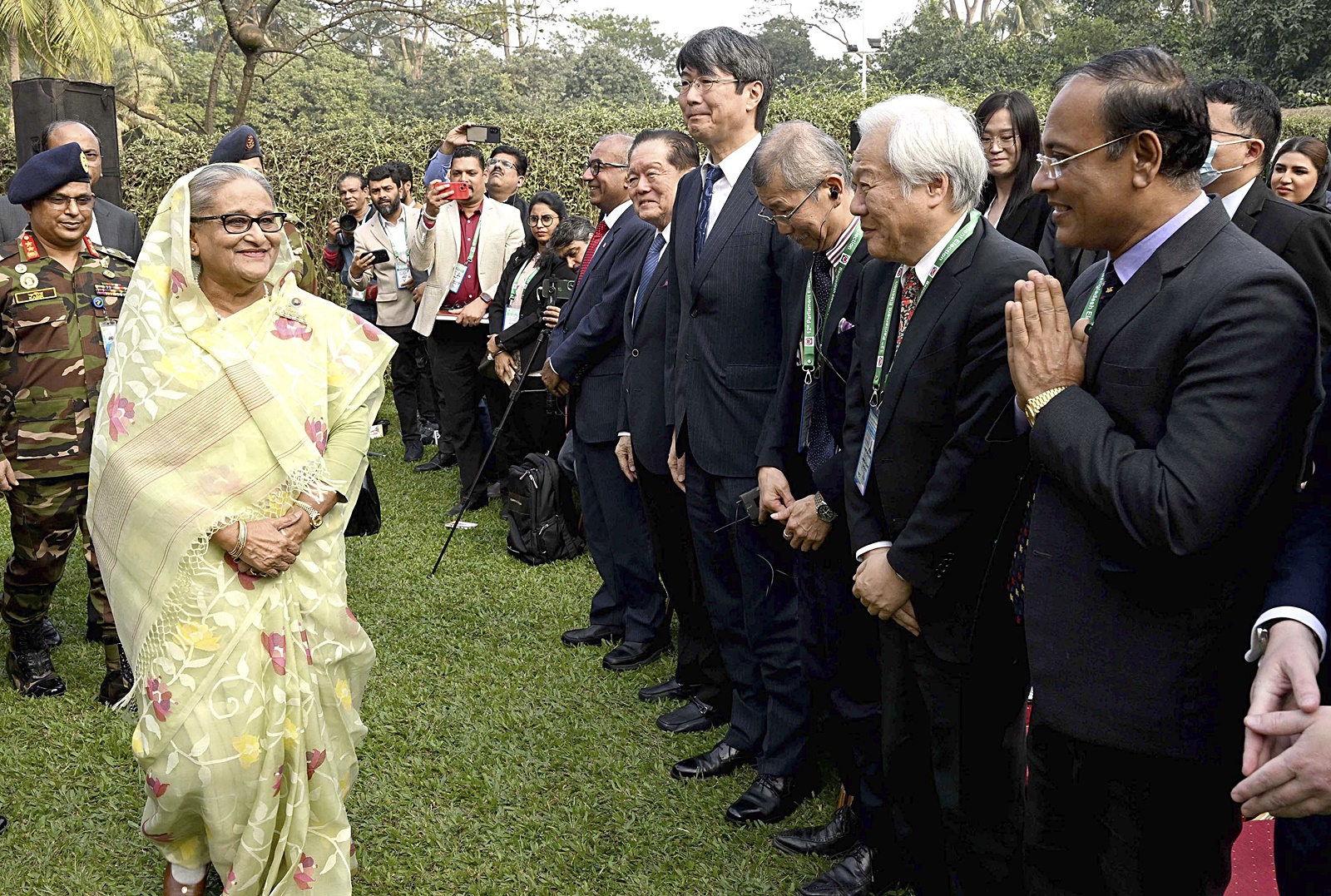
India on her side
The assassination on August 15, 1975, of Sheikh Mujibur Rehman, Hasina’s father and the founder of a modern, secular Bangladesh, shook the early foundations of a secular, Bengali identity.
After a coup, Lt Gen Zia-ur Rahman became the President and founded the BNP. Following his assassination in 1981, his wife Khaleda Zia took over the mantle of the party in 1982-83.
Khaleda and Hasina briefly came together to lead a popular uprising during the military rule of Gen H M Ershad, Zia-ur Rahman’s successor, forcing him to resign. In the elections that followed, Khaleda became the Prime Minister, while Hasina served as the Opposition leader, setting off what has been the staple of Bangladesh politics ever since — the Battle of the Begums.
Hasina’s first shot at power came in 1996, when she defeated Khaleda, and became the Prime Minister.
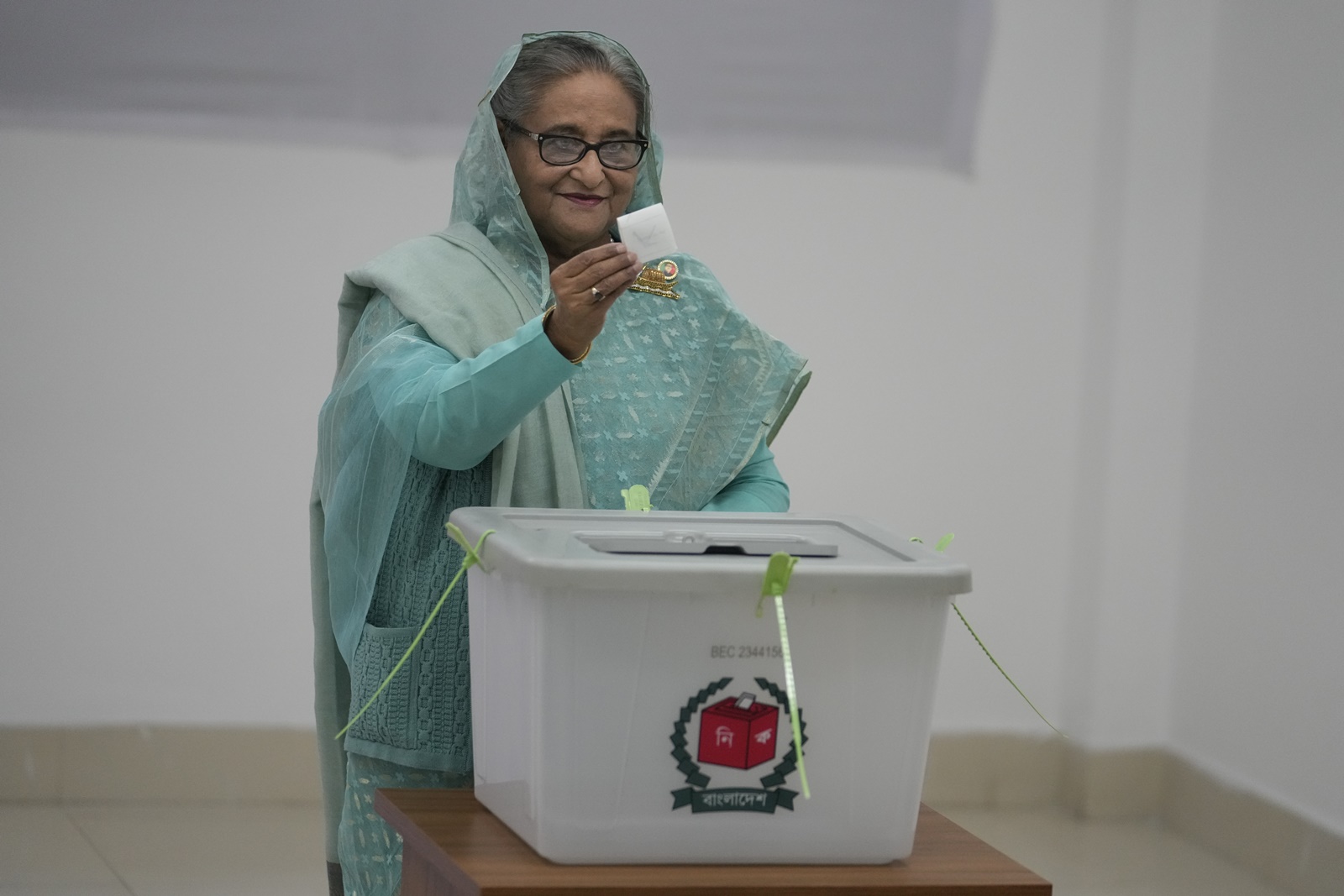
Many in Bangladesh and India feel that the 21 years from 1975 (when Sheikh Mujib was assassinated) to 1996 (when Hasina became PM), led to the strengthening of radical, Islamic and pro-Pakistan forces.
“It is quite ironic that after India helped Bangladesh win freedom in 1971, politically, it lost Bangladesh to Pakistani forces for about 21 years,” said an expert on India-Bangladesh ties, who spoke on condition of anonymity.
Hasina lost in 2001, and during Khaleda’s term between 2001 and 2006, Islamist parties, especially the Jamaat-e-Islami, who were part of the coalition government, and anti-India terrorist and insurgent groups had a free run.
From India’s perspective, it was the toughest challenge it faced in the neighbourhood. So when Hasina came back to power in 2008, it was a strategic game-changer for India — a position that continues to determine India’s Bangladesh policy.
Prof Syed Munir Khasru, head of the Dhaka-headquartered think tank, The Institute for Policy, Advocacy, and Governance (IPAG), said, “As PM Hasina cracked down on the insurgent and terrorist groups, she found India on her side. For her, fighting extremism and radicalism was the sine qua non of her governance.”
Locating Hasina’s 2024 victory in this larger political context, former Indian High Commissioner to Bangladesh Pankaj Saran said, “During her 15-year rule Sheikh Hasina steered Bangladesh back to the spirit of the liberation struggle that had led to the breakup of Pakistan and the creation of Bangladesh. This means that almost half a generation of Bangladeshis within and outside the government have grown up in an atmosphere that celebrated their Bengali identity and gave them confidence.”
“The weakening of pro-Pakistan and revisionist forces, and hence anti-India, forces is first and foremost a strategic gain for Bangladeshi society but it is also good for India-Bangladesh relations. India does not want another Pakistan on its Eastern front,” Saran said.
India also opened up its purse strings for Dhaka. With USD 8 billion in three Lines of Credit under implementation, Bangladesh has become India’s largest development partner. The first Line of Credit of US $1 billion was extended to Bangladesh in 2010, and subsequently more projects were implemented.
Saran said, “Bangladesh has gained economically and in terms of its own security by opening up to India and integrating itself with the Indian economy. There has been a marked increase in people-to-people exchanges because of a better security environment.”
With India, Hasina worked to restore connectivities that existed before 1965 — the railway lines, while creating new ones such as in the energy sector; took on radicals, terrorists and extremists within Bangladesh and those operating against India; and offered transit rights to north-eastern India from the eastern states. However imperfect they may have been, fundamentally, Hasina presided over a strategic shift in relations with India born of the conviction that good relations with India were good for Bangladesh.
With India as its key backer and ally, Hasina doubled down against the Opposition BNP and the Jamaat-e-Islami.
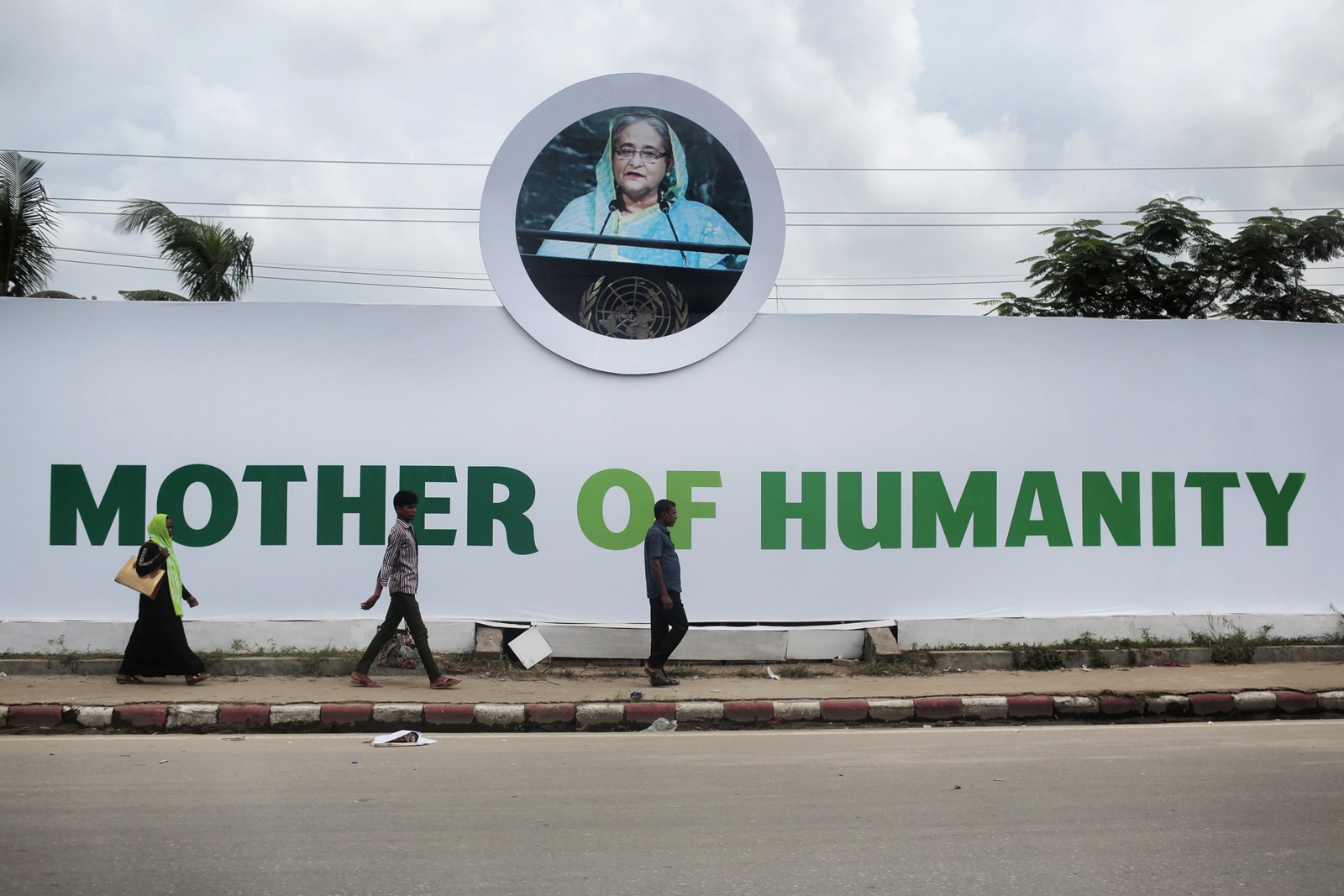
When India looked away
In 2014, BNP boycotted the elections for the first time and Hasina’s party won 152 seats uncontested in the 300-member Parliament. The Manmohan Singh-led UPA government looked the other way, learning from the past experience of dealing with Khaleda’s stint when anti-India groups had a free run.
In 2018, BNP contested, but the crackdown against the Opposition was severe. Amid reports of massive rigging, Hasina’s Awami League won 257 seats while the BNP got a mere seven.
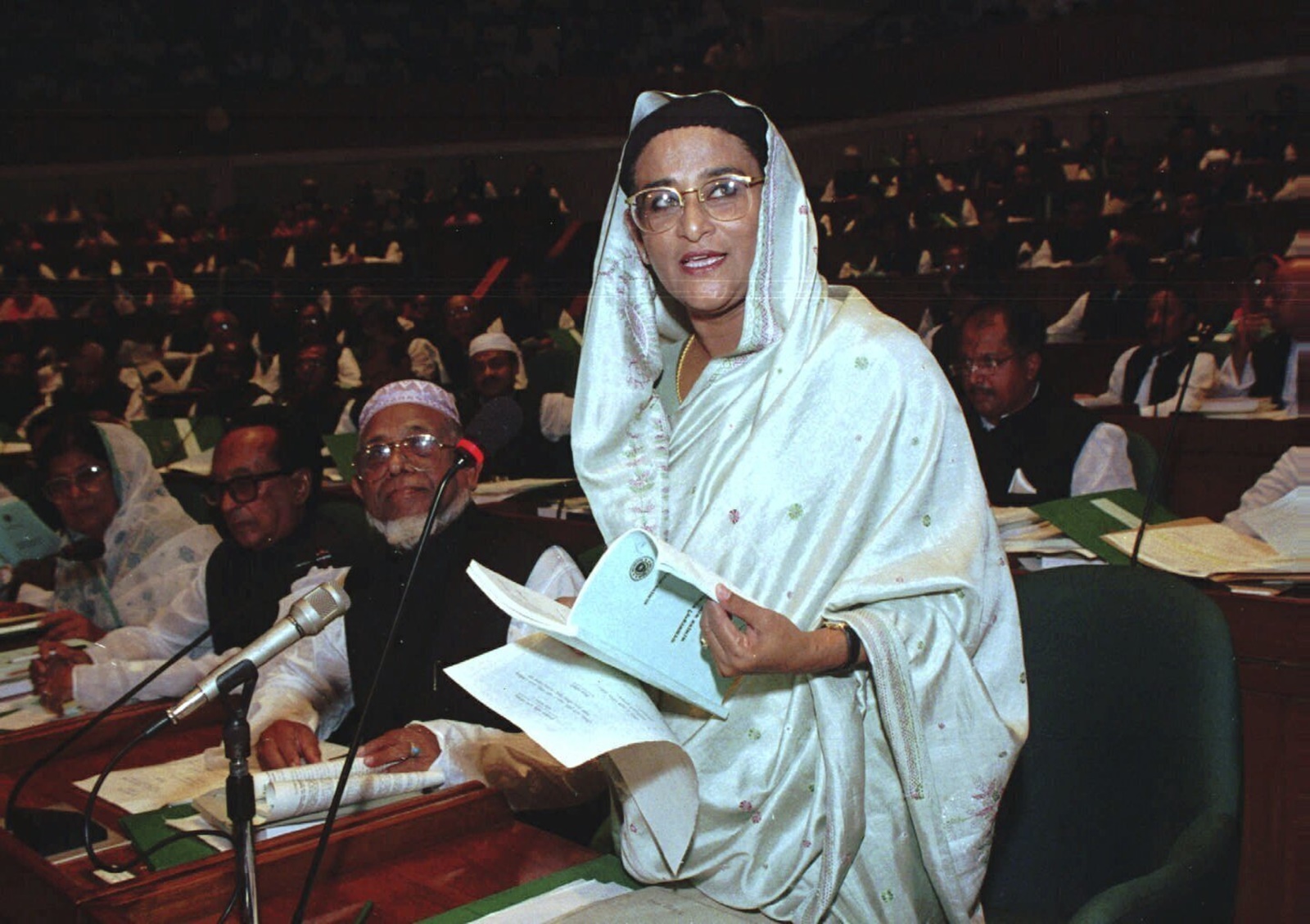
A Dhaka-based analyst said, “In 2016-17, the Rohingya refugee crisis broke out and millions of refugees poured into Bangladesh. Sheikh Hasina became a global hero, as she decided to give shelter to these persecuted refugees. This international standing of hers shielded her from criticism from the developed world.”
Hasina also has the steadfast support of the Modi government.
In 2023-24, however, the Biden administration started raising questions about the crackdown against the Opposition, media and civil society, including the repeated arrests of Nobel laureate Mohd Yunus. The US also issued visa bans on Bangladesh officials who were allegedly “involved in undermining the democratic election process”.
Analyst Ashikur Rahman, Senior Economist at the Policy Research Institute of Bangladesh, said the BNP has, however, failed to seize the opportunity and turn the tables, something that has only served to strengthen Hasina’s hand. BNP boycotted the elections held in January this year too. “This election was taking place under intensive international scrutiny, but the BNP didn’t take advantage of that. That only gives the Prime Minister legal contiguity even though our political process and the space will be plagued by distrust and confrontation. So I think you know that those are the trade-offs.”
Constantino Xavier, Fellow in Foreign Policy and Security Studies at the Centre for Social and Economic Progress (CSEP, formerly Brookings India) in New Delhi, said, “The US had lost the plot a long time ago and has failed to… push for regime change. With Delhi’s help, Washington has begun to course correct in recent months but will have to work hard to box itself out of its values corner to remain relevant.”
Many in Dhaka see that the US toned down its criticism, after India took it up with the US during the last round of 2+2 ministerial meeting in Delhi.
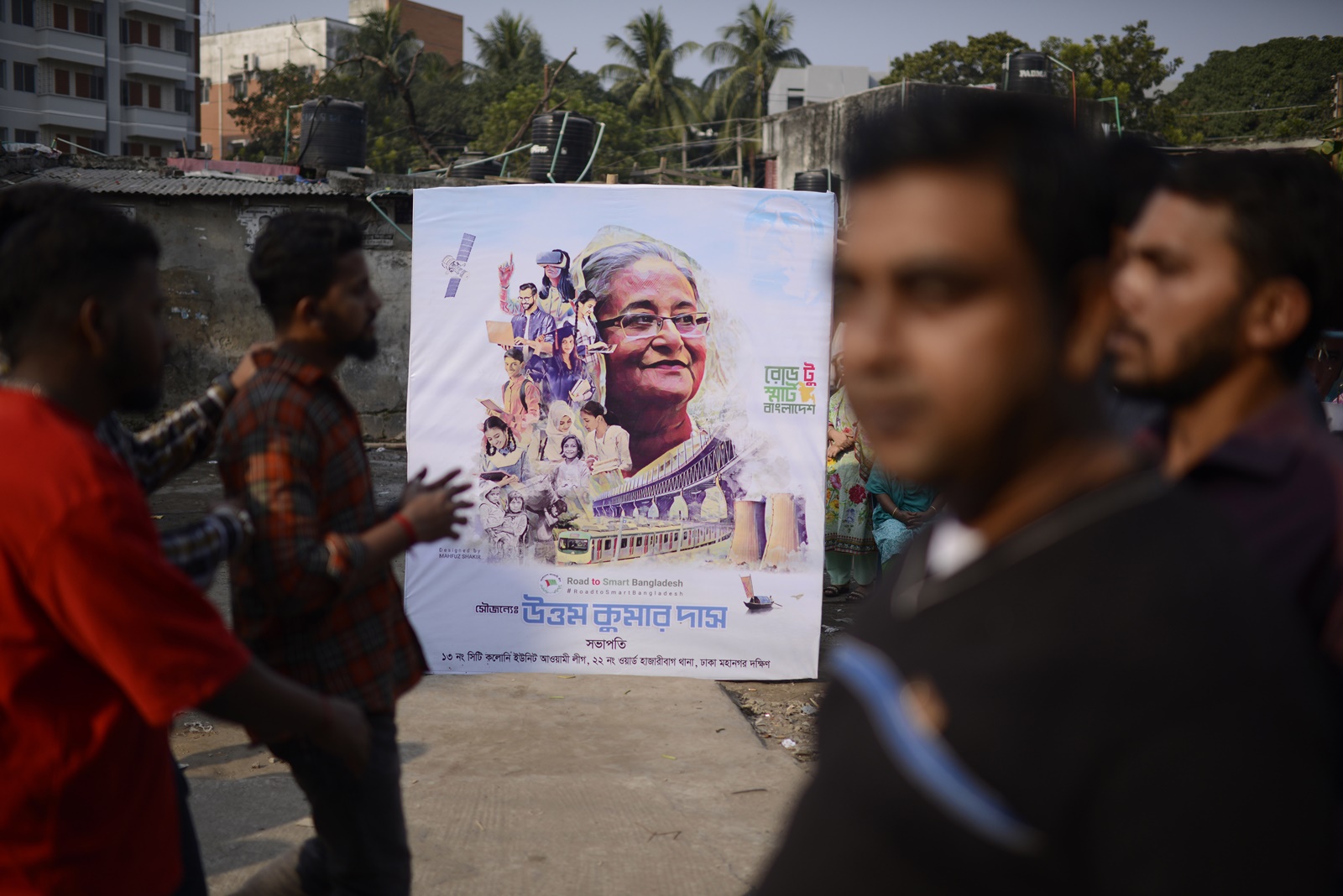
The way forward
For now, Hasina’s emphatic victory may have paved the way for another five-year term, but many say it’s unlikely to be a smooth ride.
Analyst Ashikur Rahman said, “There has been legal continuity, but the divided and polarised polity remains. Also, this time, Hasina is politically strong but is inheriting a weaker economy, a fragile economy. For 13 years, we had tremendous growth. We had mega infrastructure coming up all over Bangladesh. But post COVID and post the Ukraine war, there are pressures on foreign exchange reserves and inflation and questions are raised on internal financial management of the banking sector.”
Besides, there are several likely scenarios and questions.
Prof. Khasru said, “For Dhaka, there are three main challenges in the foreseeable future as it battles international censure for the elections: Firstly, what happens, if the US and EU — who comprise 80 per cent of Bangladesh readymade garments market — impose sanctions? Secondly, like 2007, when the then ruling BNP tried to manipulate elections, if the UN threatened to cease Bangladesh’s participation in UN peacekeeping operations because of its human rights track record? Thirdly, what if the Western powers play hardball when it comes to development finance from leading international lending institutions?”
Given India’s stakes in Bangladesh, these are also questions that stare New Delhi in the face.
“Delhi’s engagement with Dhaka is a good example of India’s democratic realism: don’t let the ideal come in the way of the real. A more democratic Bangladesh would be desirable but at this point political and economic stability are paramount to keep the momentum, as bilateral relations are at their best in fifty years,” said Xavier.

Vikram Sharma is a globe-trotting journalist with a global perspective on international events. His articles offer readers a global perspective on international events, exploring complex geopolitical issues and providing insights into the world’s most pressing challenges.

